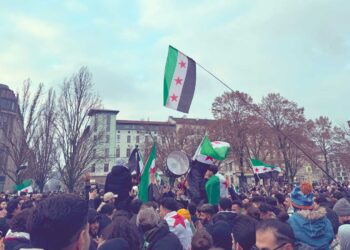It is past midnight. A sea of lights flicker in the distance giving shape to the topography of one of Amman’s hills, the neighborhood of Jabal Al Akhdar. Looking through the window are Mubarak and Mohammad from Darfur, a region of western Sudan. Both men are in their mid-30s and have been seeking refuge in Jordan since 2013.
In a room clouded by cigarette smoke, they piece together news they’ve heard through intermittent phone and internet coverage of relatives’ recent internal forced displacements between Nyala, AlGenina, Al-Fashir and the capital Khartoum. The security situation has been fast changing in Sudan ever since the war broke out in April, and the decision for their relatives to cross to neighboring countries has often been deemed not feasible, neither morally nor financially. The weight of the trauma is heavy, but they try to remain connected to their families whose lives are at risk every day. Still, they search for ways to help them from afar.
Before international media took notice of Sudan’s revolution and the recent war, two decades of genocidal violence had befallen Darfuris, shaping the future of a whole generation. Mubarak and Mohammad belong to that generation whose adolescence was interrupted in 2003, followed by a series of displacements that continue to this day. The brutal dispossession of their familiar villages and the first uprooting from their interdependent communities brought into clarity the depth of the identity politics and racism that former Omar Al Bashir’s authoritarian government employed to alienate them as Darfuris from the center of the country, Khartoum. That violence paved the way for ethnic cleansing against the people of Darfur, carried out by what was back then the recently formed Rapid Support Forces (RSF), locally known as Al-Janjaweed.
Theirs is a generation that, after being forced out of their homes, has since traversed the borders of nation states searching for rights, safety and peace. Instead, governments of neighboring countries have criminalized them, trivialized their struggle, and denied them basic rights. Indeed, as refugees and migrants in Jordan and countries in the region like Lebanon, Egypt and Tunisia, the struggle of the Sudanese people has been depoliticized and bureaucratized, leaving them to survive on the margins. The humanitarian regime in Arab states (made up of international donors, UN agencies and governments of hosting states) has framed its humanitarian strategy as a response to the spillover effects of the Syria crisis on these countries. Yet, while they have failed to create a safety net for Syrians and other refugees alike, they have systematically marginalized and undermined the struggle of refugees of other nationalities which include Iraqis, Yemenis, Sudanese, Somalis and Eritreans; labeled them as “non-Syrian refugees,” a group that has been defined by their exclusion.
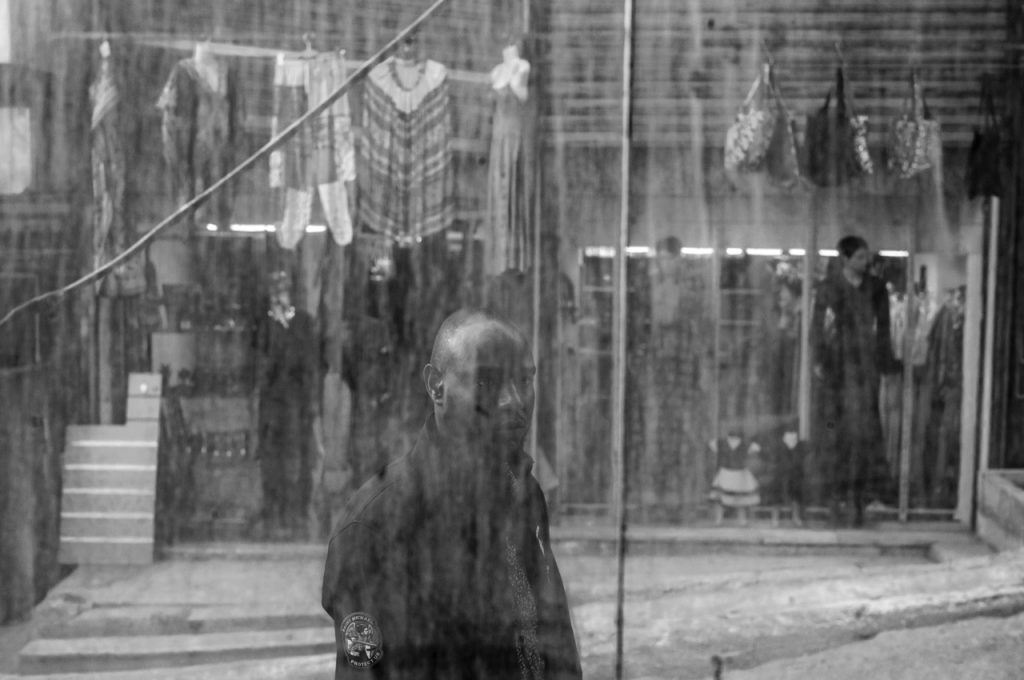
As a Jordanian activist, I have borne witness to this untold story of invisible suffering, solidarity and resistance which remains far from the thick walls of diplomatic, humanitarian and journalistic echo chambers. Sudanese refugees in Arab countries like Mubarak and Mohammad continue to challenge the status quo as the international community drags its feet in its efforts to support a nation deeply entrenched in violence.
Cameron Hudson, a senior associate with the Africa Program at the Center for Strategic and International Studies (CSIS) in Washington, D.C. recently wrote: “According to the World Food Program, six million Sudanese ‘are one step away from famine.’ With the United Nations humanitarian appeal for Sudan only one-quarter of the way funded, the prospect of a humanitarian calamity is looking more and more like a reality.”
In the text that follows below, my colleague Mubarak Adam shares a glimpse of the impact the war in Sudan has had on him and hundreds of thousands of other Sudanese refugees in exile.
The psychological toll of war and displacement
I was just a boy when the Rapid Support Forces (RSF), whom we call Al-Janjaweed, set our villages on fire in 2003, displaced us and uprooted my family and I. Twenty years later, I am still suffering from the repercussions of that injustice. Today, more young boys in Sudan are witnessing the same pain I did, if they even survive to make it. The UN says more than 1,200 children were killed in the past 5 months in Sudan, and surely the number is higher.
I can try to explain what it means to be a refugee:
- Being a refugee means being a dead person waiting for someone to give you a cure, a medicine to bring you back to life.
- Being a refugee means a person who lives with limited rights and no freedom to plan for tomorrow, let alone the future.
- Being a refugee means being a crippled child who walks without an arm or a leg.
- Being a refugee means a person who doesn’t have access to opportunities because of his/her status.
- Being a refugee means a person who is always being treated differently and not considered like other human beings who are capable and educated enough to contribute and have an impact on society.
When I fled Sudan back in 2013 to Jordan, the decision came in response to Sudanese police harassment targeted at Darfuri students at Al Neelain University where I was a master student. Seeking safety in Jordan was meant to be a short term solution because I would never gain citizenship rights in that country. I was hoping to get resettled to a country where I could exercise my full rights as a citizen, continue my education and support my family. However, getting stuck in host countries like Jordan for more than 10 years, waiting for UNHCR to find us a solution, is stressful.
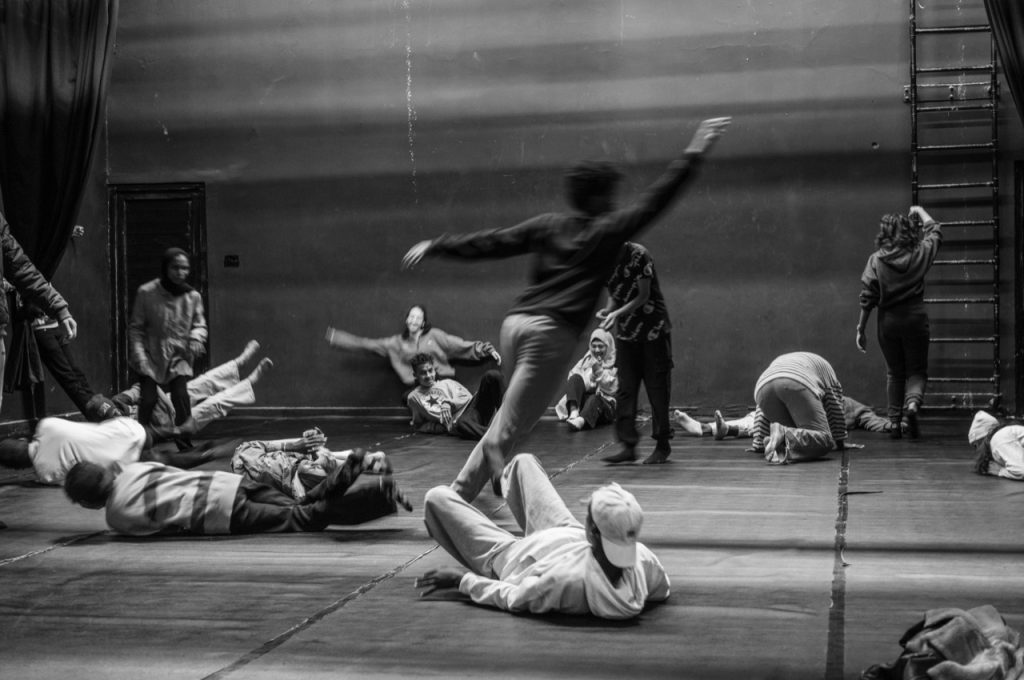
For those of us watching our country being torn apart, reading the news every day is regenerating the trauma that caused us to leave our country and seek refuge in the first place. We are experiencing survivors’ guilt yet again 20 years after our first displacement (Darfur to Khartoum), unable to support our families or move forward in life. This deepens the state of post-traumatic disorder (PTSD), depression and other mental health issues we experience as a result of living in limbo and feeling helpless. In our waking hours and in our sleep, our minds try to conjure up the situation that our family members are facing: How are they dealing with their emotions of fear, frustration, helplessness? Where are they sleeping? Are they getting enough food to eat? The experience of receiving the heartbreaking news of the missing, the separated, and the loss of loved ones is tough to deal with.
Then comes the financial stress. The need to send money back to our families is very high given the humanitarian catastrophe facing Sudan today. Sudanese refugees in Amman are not entitled to work. We depend on either illegal work or wait for humanitarian organizations and the host government to help us. Anyone who decides to work illegally will be exposed to exploitation and put themselves at more risk of being deported or being sent to prison. It is the result of a humanitarian response that is broken and not inclusive, which was reflected in December 2015 when up to 800 Sudanese refugees were deported forcefully after protesting their marginalization and struggles, and the repercussions of what followed.
Love and solidarity in resisting destruction
To deal with our situation and not break down, one has to find love through the things that bring about the spirit of joy and belonging. For us as a Sudanese community, this means practicing our culture, music, and sports collectively. What used to be a way of life in Sudan turns into a coping strategy in refuge. For example, we have been organizing popular Sudanese sports events like football tournaments, friendly matches, or weekly practices, to engage in physical activities that help us release tension, improve our mental health, and build a sense of camaraderie. Through the weekly music sessions we hold, we lose ourselves to melodies from home and get to relieve stress through singing and dancing, some recite poetry they have written to express and hold on to the connection to our roots in our far away, troubled home.
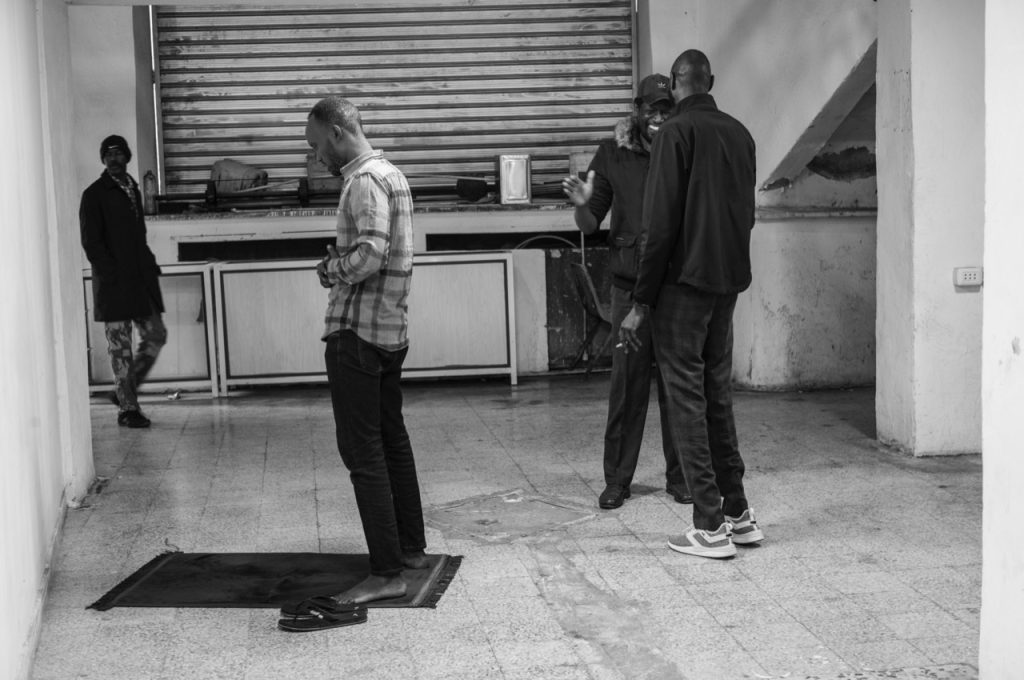
We also practice our solidarity in times of mourning. When someone passes away back in Sudan, people come together to support the family of the lost. In the Sudanese Muslim community, people hold collective “Karama”, which means relatives, friends, and neighbors gather at the family’s house, collect some money and hold this collective charity. Then they will invite the community and others to read the Quran, pray for forgiveness and mercy for the dead, and also pray for patience and solace for the family of the dead and loved ones. Afterwards, they will have lunch or breakfast together.
Networks of friends living in different parts of the world also help us keep going. They ask about ways they can help, given what is happening in Sudan. We have been able to raise some funds for our families with their help, although delivering the money to our families who do not have bank accounts has become more complicated than ever. Members of the Sudanese diaspora who were resettled to the U.S. or Canada have families back in Sudan, living in camps and in unsafe areas. They continue to send support to their family members and villages, as a way to contribute from a distance. Everyone has their own way to support, some support particularly their family and their relatives, and others in a good financial position support beyond their nuclear families. For example, Sudan Next Generation, a group of Sudanese Americans in the USA hold fundraising events to send money back to Sudan, but there are also other collective initiatives.
Unity in the face of division
Still, international support to Sudan and its people has been so weak. “When it comes to Africa and war, the attention just overall is so weak. For example, try to compare what is happening in Ukraine right now to what’s happening in Sudan. Khartoum is a city under siege, the whole country is in flux, but look at how different the media portray that conflict and this conflict, or that suffering and this suffering. You just don’t see it. Like human suffering isn’t equal. Some suffering is more important than other suffering,” said Sudanese American journalist Hana Baba in her episode from earlier in June, “Pausing for Sudan” on The Stoop podcast.
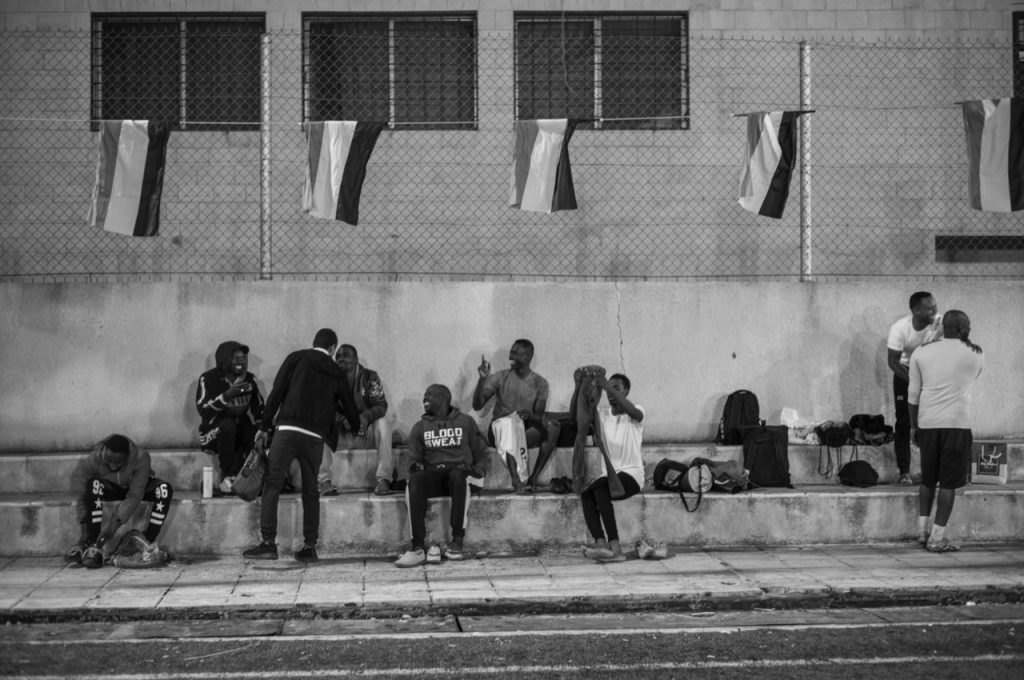
Sudan’s struggle is not just the suffering of those who are refugees, but the nation as a whole. New people are becoming displaced and refugees every day. It’s very unfortunate to see the whole world watching the war, the killing, the looting, and the rape of the girls in Sudan, while leaving us to fight the battle alone. As the Sudanese people, we will never give up. We keep resisting the situation and we believe that if the whole world neglects what we are facing, God will never leave us alone. We know that the path of struggle is long and gaining freedom is difficult but as long as people keep fighting and resisting the sun of freedom will shine soon in our beautiful home Sudan.
In a speech he made in 2004 addressing the fundamental problem of Sudan and the vision of a new Sudan, the late Dr. John Garang, the founder of the Sudanese People Liberation Movement (SPLM), once said: “Arab nationalism cannot unite us, Africanism cannot unite us, Islam cannot unite us, Christianity cannot unite us, but Sudanism can unite us.” When will we, the people of Sudan, stand united and strong together, to protect our future generations from violence, trauma and displacement? When will we pledge that war and division in our Sudan will never happen again?






